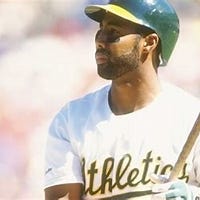Cooperstown Credentials - Maybe / Maybe Not
"Baseball is dull only to dull minds." – Red Barber


Harold Baines and Alan Trammell's inductions into the Hall of Fame have sparked quite a bit of discussion among baseball fans, particularly regarding the evolving standards for what constitutes a Hall of Fame career. Their paths to Cooperstown were quite different, but both provide a lot of insight into the broader discussion of how we evaluate greatness and contribution to baseball.
I remember Harold Baines being elected to the Hall of Fame in 2019 by the Today's Game Era Committee, and I think it caught a lot of people by surprise. Baines was a consistent hitter for over two decades, racking up 2,866 hits, 384 home runs, and a .289 batting average. He played for multiple teams, including the Chicago White Sox, Baltimore Orioles, Oakland Athletics, and Texas Rangers. He was known for being a clutch performer, his contributions to designated hitting, and his overall longevity.
I get why Baines' election is controversial—he never seemed to reach that elite status during his playing days that you traditionally associate with Hall of Famers. He was only a six-time All-Star and never won an MVP. His career just didn’t have those "wow" seasons that really stand out. Many people feel his induction was more about favorable relationships, especially with Tony La Russa, who was on the committee that voted him in. La Russa managed Baines, which led to concerns about a conflict of interest and whether Baines’ selection set a precedent for lowering Hall of Fame standards.
Keep reading with a 7-day free trial
Subscribe to Baseball Buddha to keep reading this post and get 7 days of free access to the full post archives.


